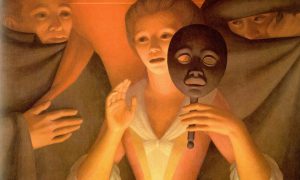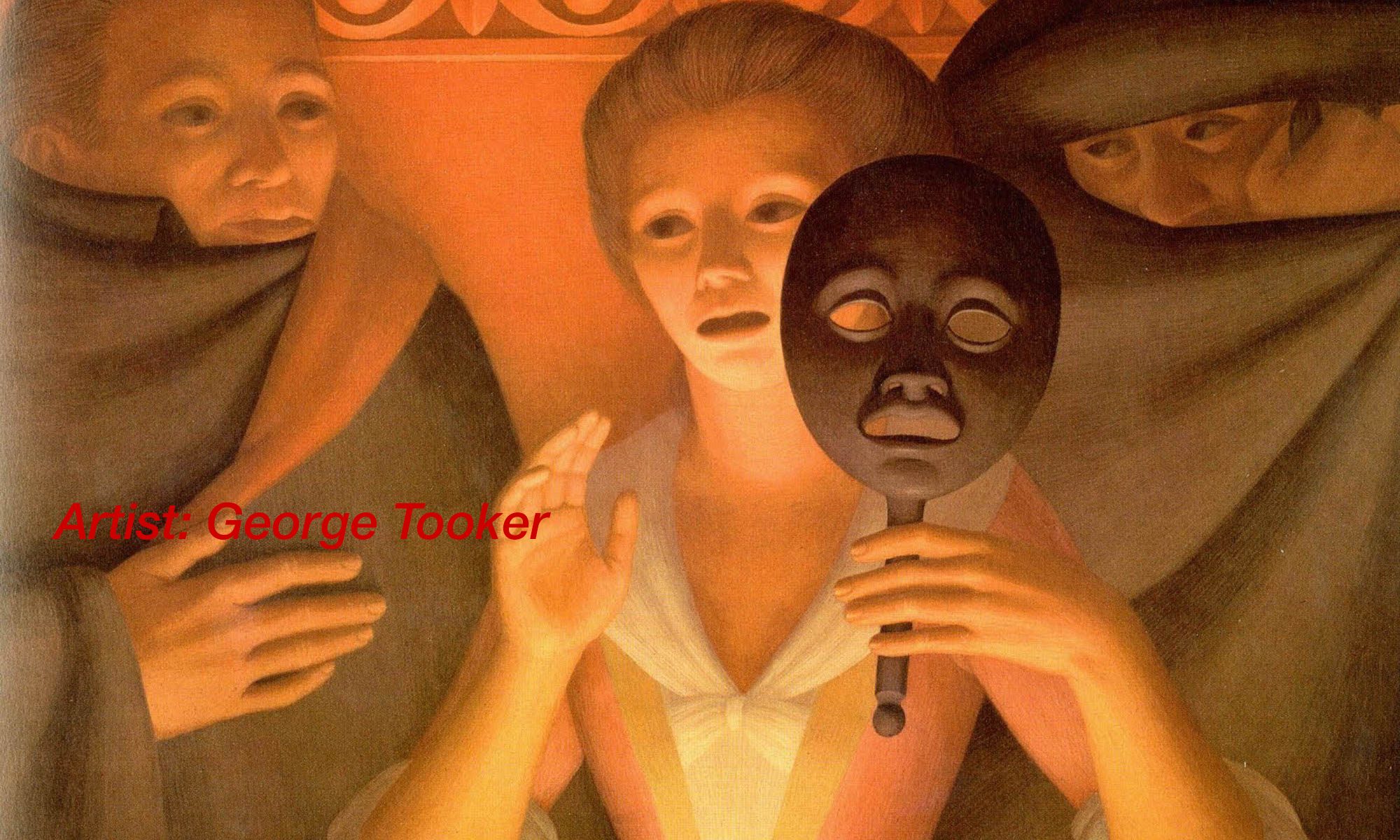
Artist George Tooker
Therapeutic Creative Writing Group Framework
This document has been co-created by the first six members of Therapiece. This is the third version produced after six meetings and now includes the Golden Rules variants for Therapiece. It is work in progress and open to input from all who are interested.
The reason for setting this up was to see how it feels – and if it can be made to work – so an experiment. It may be best to have a fixed time like six months – mid 2019, in that time we would like to have an evaluation as to how successful it is, together with some sort of do’s and don’ts guidance.
Facilitated or unfacilitated – If we go for facilitated then our preference is to take it in turns.
Golden Rules
- Equal time for all
- Confidentiality – what is discussed in the group stays in the group
- Author always in charge
- Stick to the session structure, stick to the author’s contract, stick to interventions on authors’ topics
- Reflective listening in authors sessions – foster a culture of respect
- Non-judgmental interventions, but can include positive listener/reader views
- Self-responsibility in order to support others – ensure you are well enough in terms of attention
- No intoxication at meetings (alcohol or recreational drugs).
Aims
The simple art of expressing oneself. Making marks. On paper. To share with others. To be truly seen and to be heard, without judgement.
To explore/discover aspects of ourselves that we may have either hidden or defended against or which are unfamiliar to us. To integrate and accept these aspects.
To experiment with storytelling/imagination/metaphor/stream of consciousness as a way of both exploring our writing and also our thoughts and feelings.
To be informed/inspired/opened up by others – through their stories, methods, beliefs, ways of being.
A present moment process, with immediacy, raw and real, where the end result is of lesser significance than the experiencing, where it feels as if something has changed or released, where whatever is current has been expressed.
And/or a long-term revisiting of past writing as well as reworking of current writing.
Being part of a group – learning to experience sharing, participating, supporting, leading, following, trusting, being open, being ourselves.
To spawn new ideas and increase creativity.
To enjoy ourselves!!
Framework
The emphasis is on self-discovery and stimulating creativity not on writing good English.
The creative mind in each member should be encouraged – confidentiality under authors control, and can be discussion only or writing and discussion.
There is a built-in wellness model that depends on the individual deciding what they share and also being responsible for their own and for the whole group’s wellness.
While exploring feelings is encouraged, reliving/retelling trauma without processing can be harmful. However, there is evidenced based work by Pennebaker in 1980s showing that participants who wrote about the details of traumatic events together with their feelings about the events experienced improved health and a greater sense of wellbeing.
Listeners are to give free attention to the author – attention that is free of self focused thoughts or feelings. They are not there to console or counsel but to hold space for the author to explore their thoughts and feelings. There is a balance between two or more of the golden rules in exploring what the author feels. In making an intervention it is helpful to ask – “Am I asking this for me or the author” – it may be that you still ask the question if it is mainly for you but it can be a useful validation.
Structure
Meeting twice a month – once in the same physical space, the other over video conference link.
Written work may be shared with the group in advance of the session (agreed distribution time eg 5 days prior to the session) for the author to explore if they wish.
Approximately equal length of any writing distributed in advance.
Group work (small: two to five members – can split in to sub groups if larger than this)
- Opening “circle” (equal times – discussion of expectations, contract/interventions) 1:30mins
- Description/remit of Group Exercise – 5mins
- In the moment Writing Exercise – 20 mins
- Talking session about the writing or experience (equal times) + attention switch/feedback at the end (15-20 mins each)
- Break at an agreed time 15mins
- Next time summary – who is leading next time, aob
- Closing “circle” each member (equal times) summary includes their feedback.
All times to be agreed but note blocks of time on Zoom is limited to 40mins so 1. & 2. needs to be less than 40 or a break introduced between them.
We will try to have a short break 5-10 minutes each hour.
We are experimenting with start and finish times, but we now go from a common time but if people need to arrive late or go before the end they can do so by arrangement.
Further Explanation of the Structure:
Writing Exercise
Short stimulating exercises provided by facilitator or by members in turn – this is “in the moment writing”. (led by a group member using words, images, music, smells, etc)
Talking session
Equal time for each group member.
Authors decide whether they wish to share or not. They can talk about/share:
- writing completed outside of the session (whether submitted prior to the session or not),
- writing from the Writing Exercise,
- the process of the Writing Exercise, or
- the feelings that came up from the Writing Exercise.
Author in charge – and all discussion will be based on the “contract” the author requests.
How ‘deep’ an author goes, the intensity, is a question that needs to be explored carefully with each author. It is the responsibility of the author to agree the most suitable contract for them in that session.
Author contracts are commonly one of the following:
- just listen – free attention
- listen and with non-judgmental questions or comments at the end
- interject with non-judgmental questions
- interject with probing non-judgmental questions about the authors feelings
Author need not respond to interjections
Author can confine questions to the writing or to include author’s relationship to their writing
All comments and interjections from listeners should be non-judgemental
Example non-judgment questions
- Is this part of a bigger project/piece?
- Do you want to focus on plot/character/description?
- Are you writing from experience? (debatable if this is non-judgemental)
- Do you want to explore character X?
- Do you want readers to like character Y?
…..many others
Feedback 1 to 2 mins feedback by the author
- Do I want an attention switch?
- Would I do it differently or not?
- Do I feel differently as a result of my session?
- Was it useful in terms of self and/or writing?
- Did it stimulate my creativity?
- Could my Listeners have done things differently?
Membership and Joining
- Open to all who write in English
- Members are expected to uphold the Golden rules (ie adhere and remind other members if necessary)
- Members are expected to engender “the safe feeling” of the group
- New members may attend two meetings before they formally join the group by affirming that they will stick to the rules and ethos of the group.
Co-created by Therapiece group. Version 3 agreed on 9-April 2019
